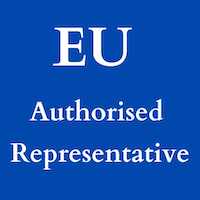Automation Medicines Regulatory Affairs Specialist
Streamline compliance with medicine regulation through automation
Learn how you can streamline your compliance workflows and boost productivity by speaking to an automation (RPA) medicines regulatory affairs specialist today. We can help you build in-house software to automate compliance with medicine regulation in the following areas:
- Regulatory updates
- Pharmacovigilance
- Product labelling
- Reporting
Why choose us to help you build regulatory automation systems?
Our decades of experience with regulations combined with our experience in making automation (RPA) software for industry puts our consultants in perfect position to support pharmaceutical companies automate their workflows.
Regulatory Automation: The Benefits
Why automate tasks of medicine regulatory affairs? Let’s cover the essentials:
- Reduce repetitive manual tasks
- Boost efficiency and productivity of staff
- Give staff greater control so they can focus on adding value
- Reduce operational human errors
Automation (RPA) Medicines Regulatory Affairs Specialist Services
Regulatory Intelligence Automation Solution
Keep your company and staff informed and responsive to changes in regulatory intelligence by setting up an automation (RPA) solution to monitor regulatory updates, guidelines, and changes in legislation. Our automation medicines regulatory affairs specialists can build in-house solutions to automatically alert the regulatory affairs team to review and assess the impact of these updates on the company’s products and processes.
Robotic Process Automation in Pharmacovigilance
Ensure rapid detection and reporting of adverse events through automation. We can help you design Robotic Process Automation in Pharmacovigilance that can integrate clinical trial databases, patient feedback forms, and healthcare provider reports to automatically collect adverse event data. This data can then be analysed and, if necessary, compiled into reports for submission to the EMA’s EudraVigilance system.
Regulatory Document Management
Automate workflows of the product lifecycle such as Marketing Authorisation Applications (MAA), variations, and renewal submissions. Automations can track document status and notify local agents of submission deadlines. Speak to an Pharma automation compliance consultant to learn how you can streamline document management, reduce human errors and aid timely submissions.
Regulatory Publishing Automation
Regulatory publishing automation streamlines the complex process of assembling, managing, and submitting regulatory documents required in pharmaceutical and healthcare sectors. Utilizing advanced software solutions, this automation ensures that all submissions meet specific regional and global standards, such as those mandated by the FDA or EMA. By automating tasks like document formatting, hyperlinking, bookmarking, and validation, companies can significantly reduce manual errors and improve compliance efficiency.
Other Areas for Robotic Process Automation:
- Quality Control and Batch Release
- Supply Chain Oversight
- Clinical Trial Data Management
- Product Labelling and Packaging Compliance
- Regulatory Submission Tracking
Case Studies: Regulatory Automation
We’ve built real-world robotic process automations for clients to allow them to boost productivity and streamline workflows. Here are some examples:
- Regulatory Updates on Ingredients: Bespoke notification system that allows client to receive updates on EU scientific committee opinions and changes to ingredient regulatory status.
- Local agent submission status: Automated email updates on status of application submission to project manager with translation to streamline internal communications.
- Auto-complete UK submissions: Auto-fill and upload of files into MHRA submission portal for multiple submissions using automation to boost productivity.
How we can help
Pharma Automation Compliance Consulting Service
Our aim is to work with your departments and across teams to simplify the workflows and reduce manual effort for time consuming routine regulatory tasks. When we work with clients on implementing automation, our RPA regulatory affairs specialist typically undertakes the following:
- Designs, develops and tests automation software
- Authors technical documentation, operating instructions and training materials
Speak to a consultant today to learn more about our Pharma Automation Compliance Consulting service.
How we work with clients
Typically, in order to build robotic process automations (RPA) for client we follow a pre-defined process:
- Establish a program to discover automation needs within an organisation
- Establish a system to prioritise automations
- Identify data and platform requirements
- Build automations in line with requirements
- Deploy and test automations
- Maintain and improve automations
Technology
To build automations (RPA) in regulatory affairs we use innovative technologies. For example:
- Robotic Process Automation (RPA)
- Intelligent Automation
- (A.I) Artificial Intelligence
- Machine Learning (in-context)
- Natural Language Processing
Automations may involve any of the following computer languages:
- Python
- C#
- Java
- VB.NET
And cloud-based solutions including:
- Veeva – Vault Submission software
- UI Path
- Automation Anywhere
- Blue Prism
What is the difference between Robotic Process Automation and Intelligent Automation?
Robotic Process Automation (RPA) focuses on automating repetitive, rule-based tasks without the need for decision-making, ideal for structured processes like data entry. Intelligent Automation (IA) combines RPA with artificial intelligence (AI) technologies like machine learning and natural language processing, enabling it to handle complex tasks that require understanding, decision-making, and learning from unstructured data. Essentially, RPA automates what is clearly defined and repetitive, whereas IA introduces the ability to automate tasks that involve ambiguity and require a level of insight.
Robotic Process Automation in Regulatory Affairs Training
Our RPA regulatory affairs specialists are trained in the following areas of automation:
- Types of problems that can be solved by automation
- Automation Strategy
- Types of machine learning models compatible with automation
- Deployment and installation of automation
Certified in Automation
Our automation medicine regulatory affairs specialists hold certificates in the following skill sets:
- UiPath Certified Professional (UCP)
- Automation Engineer
- Automation Developer
- Automation Business Analyst
- Automation Solution Architect
- Specialised AI Professional
- Document Automation Specialist
- Automation Test Specialist
- Robotic Process Automation (RPA) Developer
- Robotic Process Automation (RPA) Solution Architect
Ui Path Competencies
- UiPath Studio
- UiPath Orchestrator
- UiPath Robot
- UiPath Internal Solution Configurations
Speak to a pharma automation compliance consultant
Complete the form below to get in touch with a pharma automation compliance consultant today
Other Supported Industries
Our automation regulatory affairs specialists can support a number of other industries including but not limited to:
- Vape
- Cosmetics
- CBD/Cannabis
- Biocides
About Medic Pro
What We Do
We are a London-based regulatory affairs consultancy providing services to the e-cigarette, cosmetic, biocide, pharmaceutical and medical device industry. We help e-cigarette companies comply with the Tobacco Products Directive and pharmaceutical companies obtain and maintain medical product licences. We also offer UKAS accredited biocide and analytical testing services.

